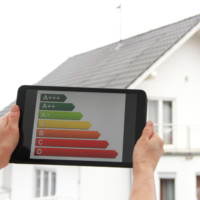
The lender said that it would only lend on D-rated properties where it has the “potential to improve” their EPC rating to C.
Skipton International said the criteria was part of its “proactive approach” to ensure customers could meet future EPC requirements. The criteria comes into effect from 3 May.
The EPC requirements, which have not been passed into law yet, states that new tenancies should have an EPC rating of C or higher by 2025 and existing tenancies should reach that benchmark by 2028.
The Minimum Energy Performance of Buildings Bill has passed its first reading in the House of Lords and is now on its second reading. To be passed into law, it has to pass the House of Lords then the House of Commons, go through a final stage and then it gets given royal assent and made into law.
It builds on current legislation introduced in 2020 which states that landlords could no longer let or continue to let properties covered by the Minimum Energy Efficiency Standard if the property has an EPC rating of E or lower unless there is a valid exemption. EPC ratings range from A to G.
The lender said it “remains unclear” whether the changes for rental properties would come into effect in 2025, but other legislation slated for 2028 and 2030 which focus on residential properties as a whole were “likely to continue as planned”.
Roger Hughes, business development manager at Skipton International, said: “Whilst much speculation continues as to when this proposed Bill and EPC deadlines will come into effect, we wish to position ourselves as a bank that will only lend on properties that support the government’s decarbonising strategy.”
The government pledged last year that the UK would be net zero by 2050, and as housing contributes one fifth of all carbon emissions focusing on the energy efficiency of housing is cited as a key strategy to meet this goal.
















